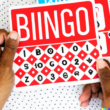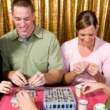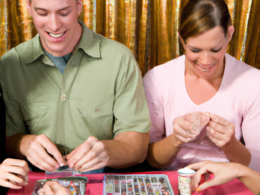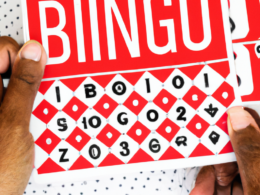Bingo is a word that is derived from the French word “bengali,” which means “to row.” The modern American game of bingo, as we know it, likely originated in the mid-19th century.
In its early days, bingo was played primarily by men in saloons and other venues where alcohol was served. In the 1930s, women began to participate in the game, and today it is widely enjoyed by people of all ages and genders.
The game of bingo is quite simple. Players take turns drawing a card from a stack containing 26 different cards. The card that is drawn is called a “bingo card,” and when played, it covers one of the 26 spaces on a game board. The player then reads aloud the numbers 1 through 25 corresponding to the number shown on their bingo card.
If any of these numbers are also found on another player’s bingo card, then that player must either yell “bingo” or place a ball in the appropriate column on their game board representing the number shown on their bingo card. If no other player has that number, then the player can continue playing by drawing another card from the stack and reading off its corresponding number. The game continues in this way until one player yells “bingo” or all players have either placed balls in columns or failed to draw cards that would add up to the number shown on their bingo card. At this point, the player who yelled “bingo” is victorious and wins whatever prizes are associated with that particular game.
The word “bingo” has many different meanings depending on how it is used. In its most basic form, bingo refers to a random selection or draw from a set of things or people.
For example, if you are playing Bingo at home and you want to randomly select one of your children to receive a prize, you would use the word “bingo.” In this context, “bingo” refers only to drawing something out of thin air – it does not necessarily have anything to do with playing a board game or enjoying some type of entertainment experience.
When someone says they have won a lot of bingos at the casino, they are typically referring to earning lots of money through various gambling activities such as slot machines or video poker. When someone refers to themselves as being a “bingo master,” this usually means that they are very skilled at playing Bingo at home or at various social events where the game is typically played.
In conclusion, Bingo is an ancient French word that has been adopted into English as both a noun and an adjective meaning both random and lucky respectively. It is primarily associated with gambling activities such as slot machines and video poker but can also be used casually to refer to any type of luck-based selection process.







